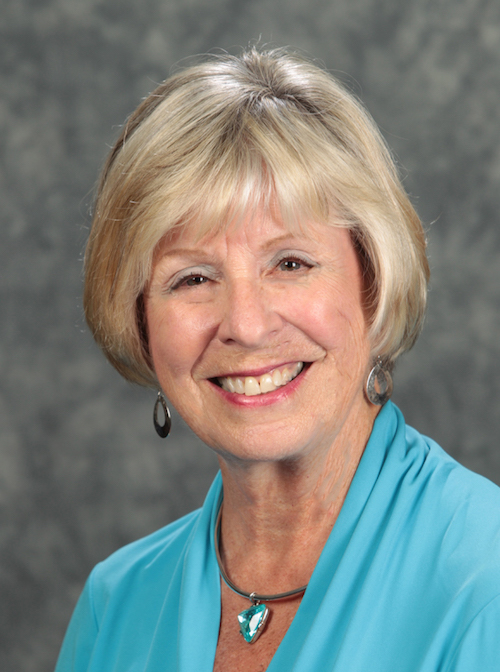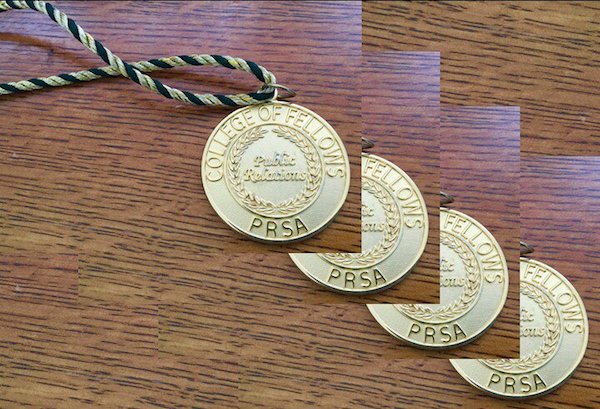College of Fellows: 30 Years of Leadership and Legacy
By Geri A. Evans, APR, Fellow PRSA
October 2019
Serving as the crisis communication leader during the largest art heist in the world, interviewing President Reagan (on two hours’ notice), having a company’s brand carried by someone swimming across the English Channel (for the first-time ever) — all of these are part of the hundreds of special stories of the extraordinary professionals who make up the PRSA College of Fellows.
As the College of Fellows celebrates its 30th anniversary this year, tracking its history has been a journey of discovery, reflection and inspiration.
Margaret Ann Hennen, APR, Fellow PRSA, has spent the past year helping record the 30-year history. Here, she discusses the Fellows and their role within PRSA:
What is the College of Fellows?
The College of Fellows is a group of experienced practitioners and educators who, through a rigorous application and selection process, have received PRSA’s highest professional designation. To be a Fellow is considered the pinnacle of one’s PR career.
What do Fellows do?
They work in every facet of the PR and communications profession. They mentor, teach, guest lecture, speak at conferences, serve on APR panel reviews, and serve as leaders and advisers at all levels of PRSA. They are leaders in their communities.
Why did the Fellows decide to capture their history now?
To obtain firsthand accounts of our history, we needed to record [everything] as soon as we could. Our 30th anniversary provided the perfect inspiration. Harold Burson, the 20th century PR icon who turned 98 this year, is the only living Fellow from our first class of 26 Fellows. He graciously agreed to be interviewed on camera. Now we have invaluable video of his passion for and perspective on our profession, mentoring and achieving professional excellence. (See sidebar.)
How did the history project unfold?
When we started the project, we didn’t know what existed and where it was located. We contacted past chairs and all active members. Fellows searched filing cabinets, uncovering all kinds of documents, including many from the 1986 PRSA Symposium on The Architecture of Professional Progression, from which the idea of a College of Fellows emerged. Our history project reflects the dedication and commitment of leaders within PRSA and the profession.
What changes did you observe with the demographics and interests of the Fellows over the past 30 years?
Initially, there were more men in the profession and, thus, in the College of Fellows. As the workforce changed and career opportunities expanded, more women embraced the profession. We’ve seen the creation of standards of excellence and the transformation of the role of a PR specialist from a “doer and implementer” to that of a thought-leader and trusted adviser. PR professionals have worked hard to earn a seat at the table so they can participate and guide from the beginning. The tools have changed. The goals of public relations have not.
What qualities of a Fellow have remained consistent throughout the past 30 years?
Four qualities stood out:
- A love for the profession
- The focus on ethics and integrity, working constantly to make public relations a respected profession and one of influence within an organization
- The ability to persevere — PR professionals see what needs to be done, step up and see it through to completion
- A desire to help others succeed
Why did you become a Fellow? Why should anyone consider it?
It started with my National Board service. I was not yet a Fellow and was inspired by the quality, experience and knowledge of those board members who were. As soon as I completed my board service, I applied for the College. It was an opportunity to aspire higher as I reflected on my years in PR practice and things I had done for the greater good. Being a Fellow is a validation of who you are as a professional.



